Genres of Kyrgyz Labor Songs
In pre-class and class societies, when the ancient Turkic-speaking ancestors of the Kyrgyz lived a nomadic pastoral life, song folklore was inseparable from their labor activities.
However, modern musical transcriptions of the few samples of labor chants have been made by folklore collectors based on reports from informants who performed them in conditions far removed from the authentic labor process.
Based on the poetic content of the performed and recorded songs, it can be concluded that in their archaic form they were sung up until the early 20th century, when a radical break from the feudal-clan way of life of the Kyrgyz began.
Among all the ancient mass folklore songs related to labor, the genres of "bekbekey," "shyryl-dan," and "op mayda" stand out clearly. The first two are associated with animal husbandry, while the third is linked to agriculture, directly related to the labor process itself.
They emerged approximately in the middle or at the final stage of the primitive communal system (the Bronze Age). This can be inferred from the typical musical and poetic means, as well as the peculiar mythological representations reflected in these genres.
Bekbekey is one of the oldest shepherd song genres. Its emergence was due to the economic characteristics of the nomadic pastoral community, which organized collective protection of small livestock in summer pastures (zhailoo). In early spring, winter, and late autumn, the song "bekbekey" was hardly performed; rather, its performance was possible only in the form of music without the appropriate background for this genre, as during these seasons, nomads kept sheep and goats in pens.
This song is first mentioned in pre-revolutionary sources. The Russian orientalist G. Zagryazhsky, who studied the old pastoral life of the Kyrgyz, wrote that "at night, the livestock are guarded by girls who shout the song until dawn to scare away wolves." Thus, the author correctly noted a typical element of the genre — emotionally-signaling exclamations.
The first definition of this genre was later given by A. Zataevich: "Bekbekey refers to the songs sung by Kyrgyz women who guard the flocks of rams at night." In his commentary on the version of the "bekbekey" chant he published, the scholar emphasized that these songs "usually consist of a high, prolonged note, falling out of the main tonality and lingering long in the night silence, in the nature of a warning exclamation."
A. Zataevich refers to a typical feature of the genre — the concluding intonated interjection "ai, du-u-u-yt!" At the same time, in other versions of the song "bekbekey," there is a characteristic moment — the multi-voiced "laughter" of the guards, intonationally descending after the cadential exclamation. This, evidently, was how they encouraged themselves in the anxious atmosphere of the night.
The socio-domestic function of the "bekbekey" songs had a distinctly practical character. For the shepherdesses, these songs served not only as a signal to scare away wolves but also as a means of entertainment. It was a unique form of popular mass folklore music-making. In general, "bekbekey" does not fully correspond to the category of labor song genre, which implies direct accompaniment or musical reflection of the rhythm of labor movement. This is an aesthetic element that plays an important role in the performance of the guards in fulfilling their communal production duties.
V. Vinogradov provides a characterization of the "bekbekey" genre. He studied the socio-domestic, content, and musical-performance aspects of the genre. He described "bekbekey" in detail, but at the same time, his definition requires some clarifications regarding the degree of popularity of this genre. V. Vinogradov's assertion that "bekbekey is a widespread song among the people" is only true concerning the previous era, as at that time these songs indeed had a strong social foundation and were widely performed.
In the 20th century, the genre lost its original properties, which is associated with fundamental social changes in the economic life of the Kyrgyz. It increasingly lost its previous foundation, coming into clear contradiction with the system of socialist cooperative economy.
Read also:
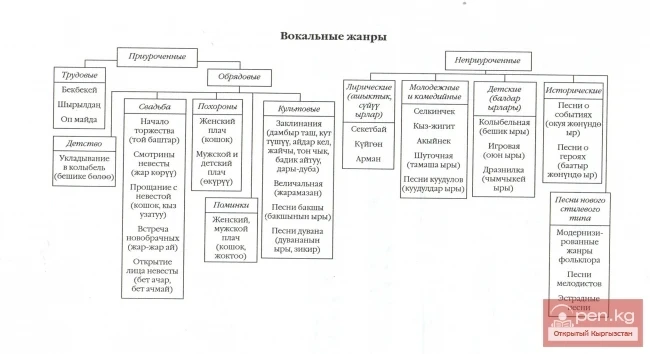
General Characteristics of Vocal Genres of the Kyrgyz
The vocal creativity of the Kyrgyz people reflects their rich history, social and domestic...

Solo Genres of Akyns
In solo genres, the akyn sings or recites their own or borrowed text, accompanying themselves on...

Children's Song Genres
The melodies of this genre group are differentiated into children's songs and songs for...

The Economy of the Kyrgyz from Ancient Times to the 6th Century
The tribal communities inhabiting the Central Tien Shan, Issyk-Kul, Chui, and Talas valleys...

Youth Song Genres. Comedic Genres
The Kyrgyz youth song genres include songs performed by young men (jigitter yrlary) and young...
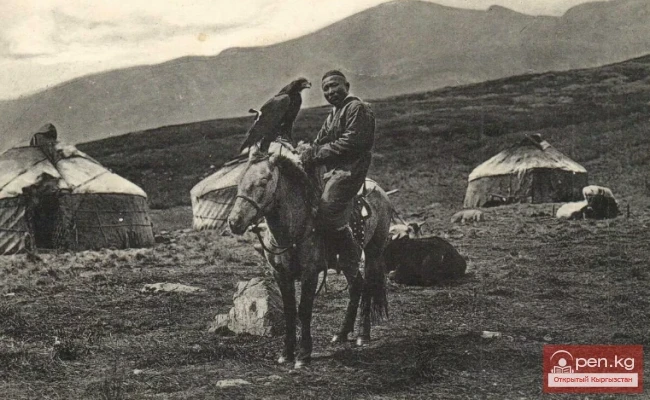
Mythological Type of Consciousness in the Development of the Kyrgyz
Mythological Type of Consciousness A person controls their own actions, accepts and bears full...
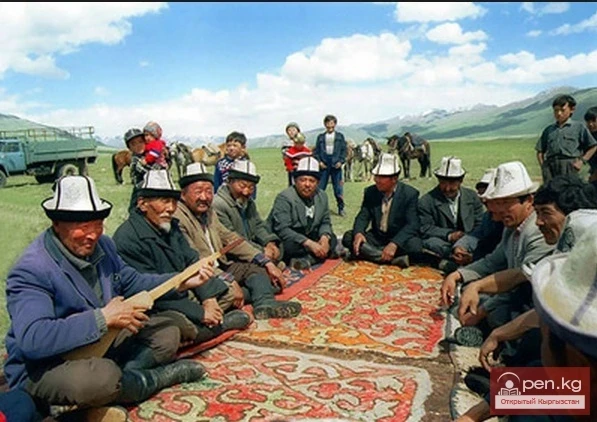
Study and Current State of the Art of Akyndas
The creativity of the akyns has been studied since the early years of the establishment of...
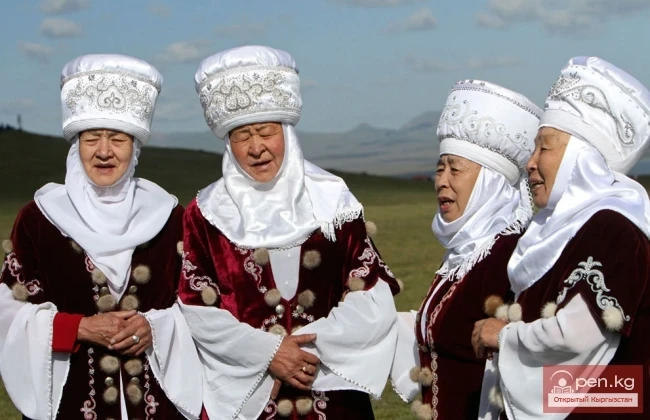
Mass Musical Folklore
Today, in the era of sovereign, independent Kyrgyzstan, there is a genuine revival of the national...
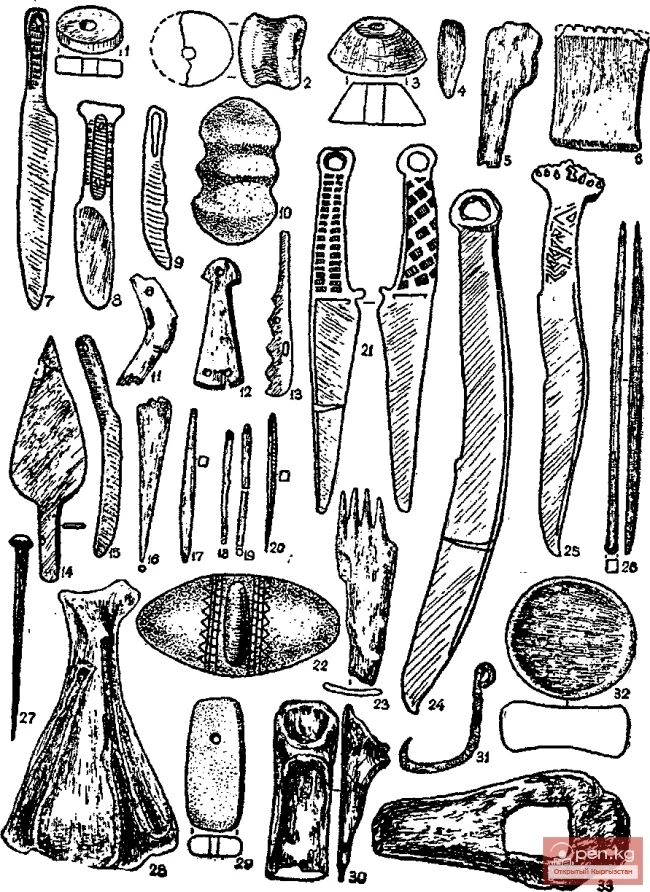
Natural Resources of the Kyrgyz in the Bronze Age
The main landscape of Kyrgyzstan consists of mountains. Enclosed mountain valleys are surrounded...

Dictionary of Kyrgyz Artistic Terms
Aidar kel — wind incantation. Aitym kuulor — virtuoso instrumental performances. Aitysh — a major...
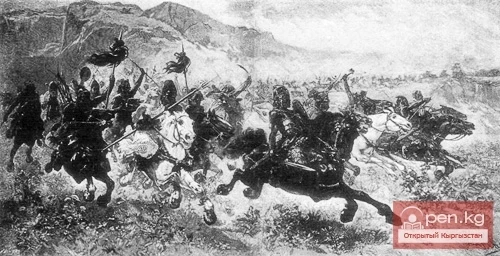
Military Forces of the Kyrgyz in the 18th - Early 20th Century
Since the Kyrgyz did not have their own state formation during the period in question, there is no...
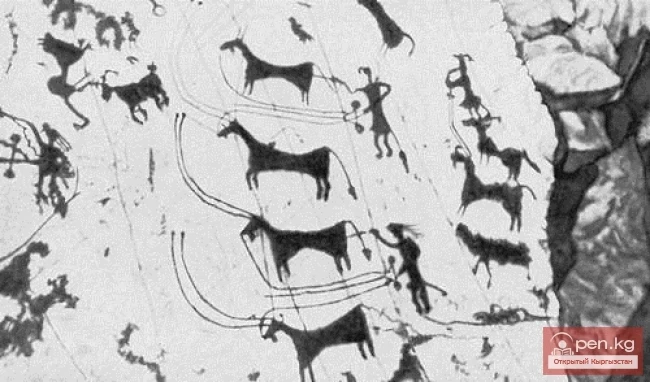
Ancient Kyrgyz — the Earliest West Turkic Tribes
Ancient People — Kyrgyz The Kyrgyz, whose roots go deep into antiquity, lost in the darkness of...

On the Subject of Kyrgyz Musical Folkloristics
The concept of folk music (traditional music, musical folklore) is relative in its genesis. It...
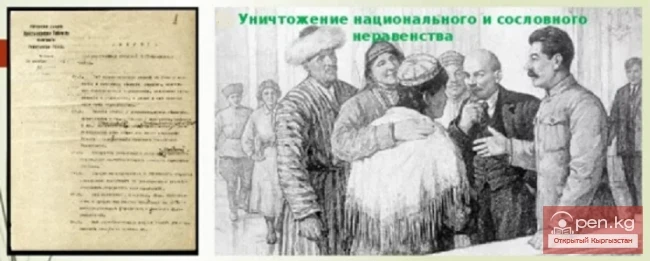
Privileged Kyrgyz Estates Between the Past and the Future
“Who is not with us is against us” The traditional way of life of the Kyrgyz tribal society began...

The Transition of the Kyrgyz to Sedentary Life
Sedentary Life among the Kyrgyz The transition to sedentary life, being an extremely complex...
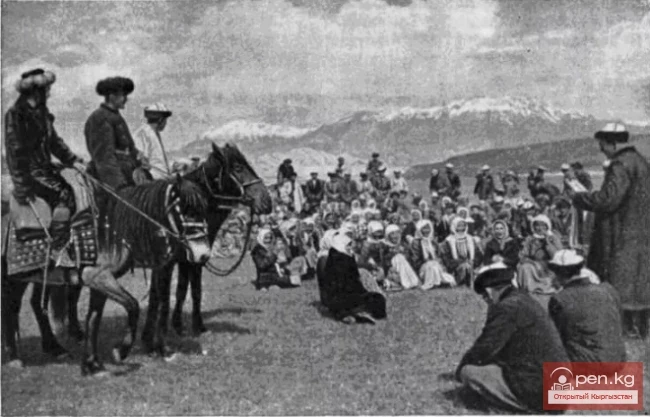
The 20th Century — A Time of Forced Transition for Kyrgyz from Tribal Lifestyle to Soviet Order
FEATURES OF HISTORICAL CONSCIOUSNESS AND SOCIAL BEHAVIOR OF THE KYRGYZ IN THE EARLY 20TH CENTURY...
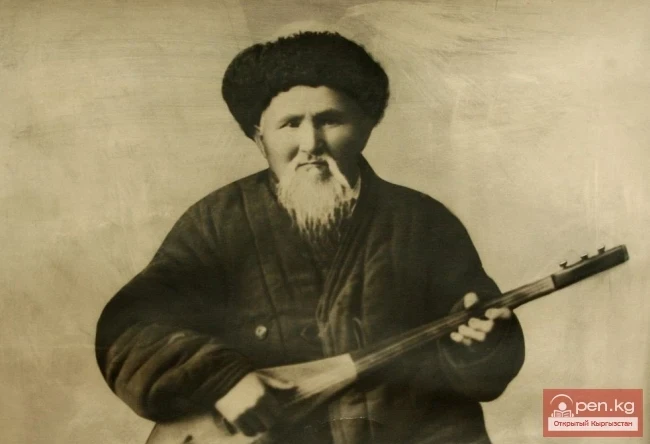
Toktogul Satylganov (1864—1933)
The greatest representative of the akyn art of the first half of the 20th century was Toktogul...
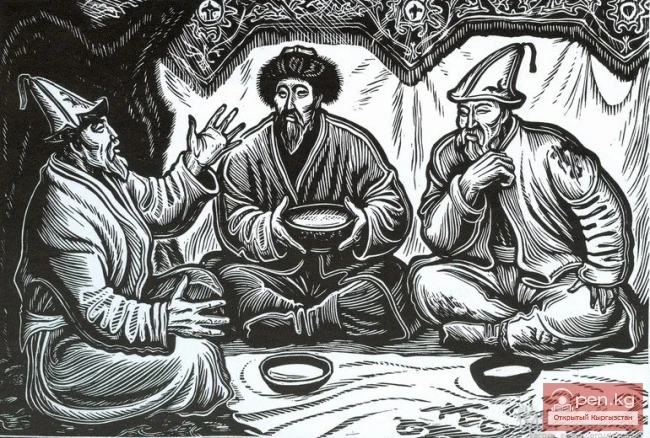
Historical Kyrgyz Songs. Songs of a New Stylistic Type
Kyrgyz Folk and Mass Musical Creativity In Kyrgyz folk and mass musical creativity, songs about...

"Priirtysh Kyrgyz"
«Priirtysh» Kyrgyz. In "Taba al-khayvan," Marwazi (12th century), in the section about...

The Evolution of Consciousness - Part of the Overall Process of Historical Development of the Kyrgyz
The evolution of consciousness - part of the overall process of historical development of humanity...
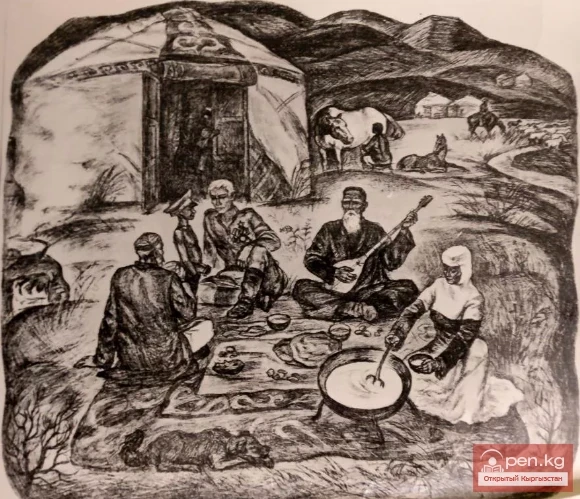
The title translates to "Dwellings of the Kyrgyz."
SETTLEMENT AND DWELLING The presence of two different types of economic activities in the 19th and...
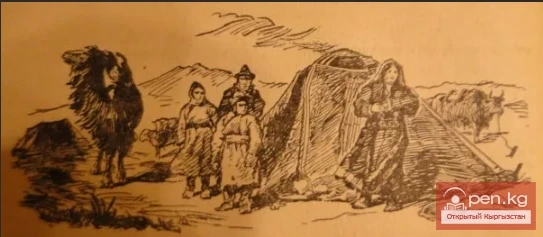
Disputes about the Resettlement of Kyrgyz from Yenisei to Tian Shan
How did the Kyrgyz appear in Tian Shan? A special place in the study of the monuments of oral folk...

The Territory of the Kyrgyz from Ancient Times to the 6th Century
The Saka tribes were divided into three parts. In the southern regions of Kyrgyzstan lived the...

Reflection in the Sanjyr of the History and Genealogy of the Kyrgyz People
The sanjyra, as a historical source, consists of a structure made up of legendary and several...
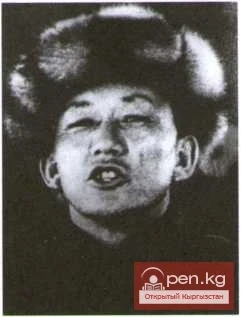
Musa Bayetov (1902—1949)
Musa Bayetov (1902—1949) is the author of four dozen songs. The best of them are created in...
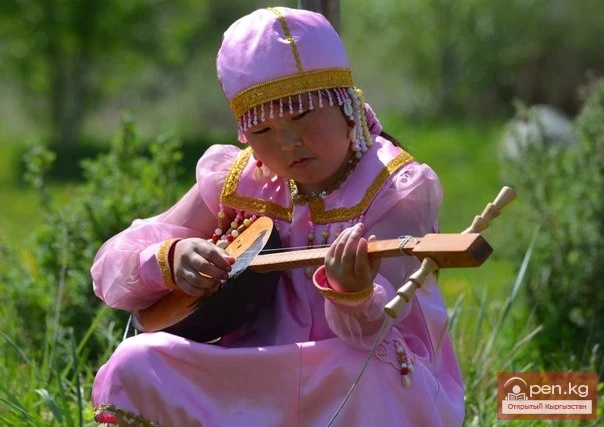
Lyric Musical Genres of the Kyrgyz
The genres of song lyricism are richly represented in Kyrgyz folk art, being among the most...
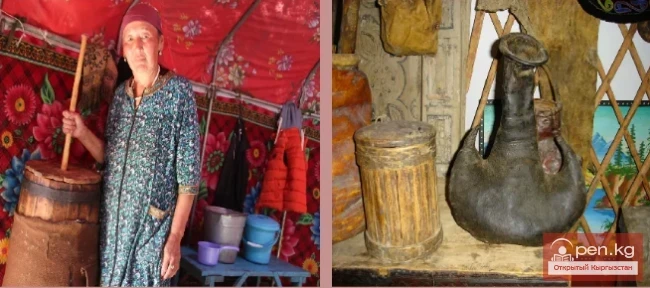
Traditional Utensils of the Kyrgyz in the Last Century
TRADITIONAL UTENSILS The focus and nature of domestic crafts were determined by the nomadic and...
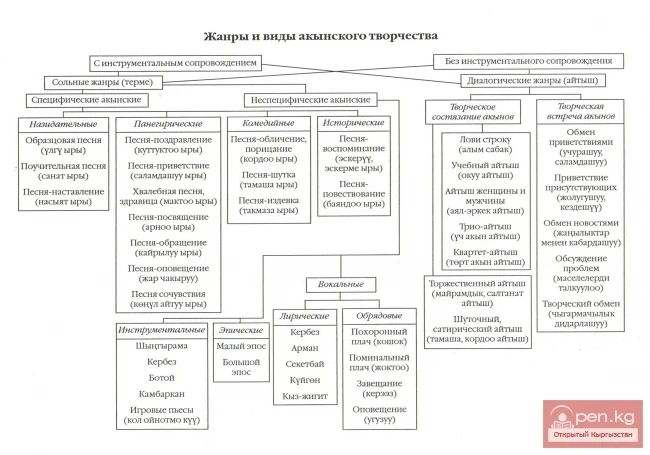
General Characteristics of the Genres of Akyn Creativity
Akyn Creativity is a unique layer of Kyrgyz song tradition. Its significance is determined by the...
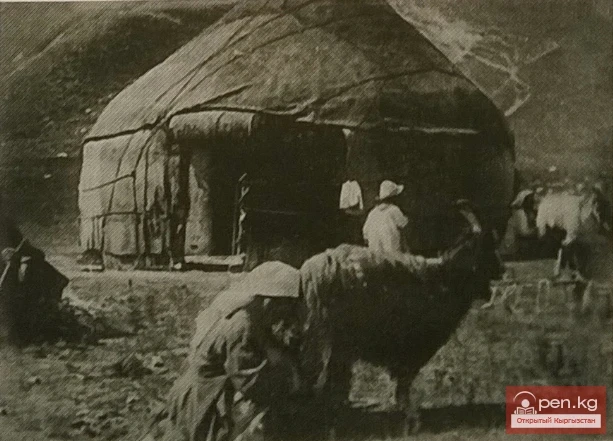
Cattle Breeding Cults of the Kyrgyz in the Early 20th Century.
Forage Preparation Forage preparation became widespread in the late 19th century due to a lack of...
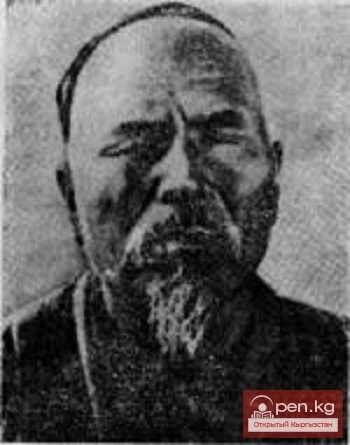
Barpy Alykulov (1884—1949)
Barpy Alykulov (1884—1949) — an improvisational poet, singer, thinker, and classic of the folk...
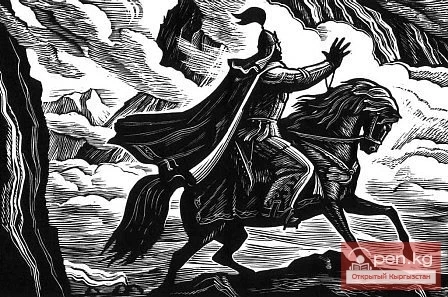
Ancient Information about the Structure and History of the Earth's Surface
If we consider events spanning a longer geological time, the ideas expressed in the epic...

Republican Contest of Military-Patriotic Songs
The Ministry of Education and Science of the Kyrgyz Republic, in collaboration with the Defense...
Kyrgyz Folk Music in a Socio-Historical Aspect
Curl error: Operation timed out after 120001 milliseconds with 0 bytes received...
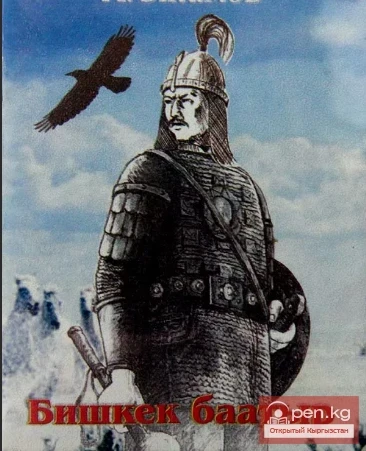
The Emergence of Bishkek
THE ORIGIN AND DEVELOPMENT OF BISHKEK Findings of stone tools by archaeologists during the...

"Central Asian" Kyrgyz Nomads
Ulus Inga-Tyuri During military clashes, it appears that part of the "Central Asian"...
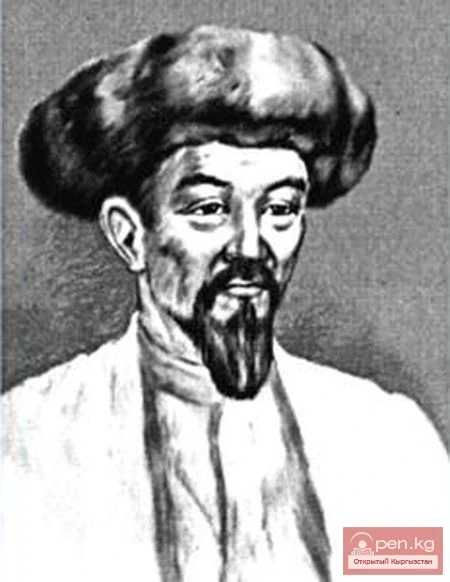
Arstanbek Builashov (1840 — 1882)
The great akyn-thinker of the past century Arstanbek Buylashov (1840 — 1882) — akyn, komuz player,...
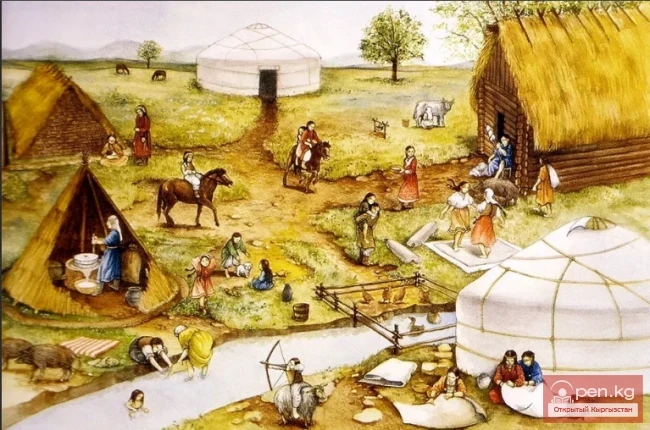
Cattle-Breeding and Agricultural Economy of the Ussurians
Idealization of Nomads in Ancient Greek Literature In ancient Greek literature, there is a clear...
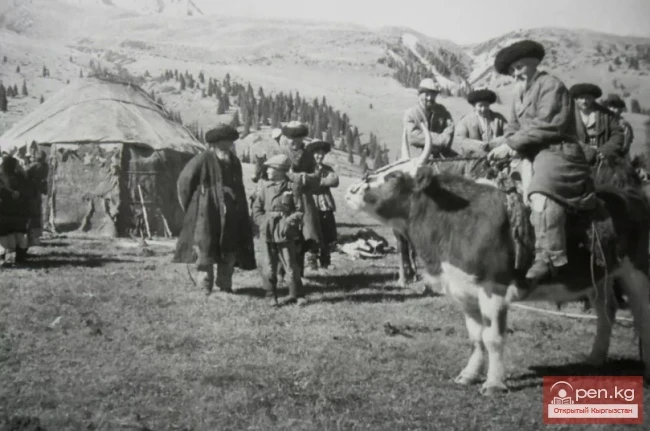
Tribal Structure and Way of Life of the Kyrgyz During the Period of Bolshevization
The Kyrgyz During the Bolshevization Period One should not think that the collective...

Military-Police Institute and the Institute of Seniority among the Kyrgyz
Military-Police Institute and the Institute of Seniority The Military-Police Institute in ancient...

Councils - Important Institutions of Governance for the Kyrgyz Tribe and Clan
Kyrgyz Councils Councils were important institutions of governance for the tribes and clans. Those...
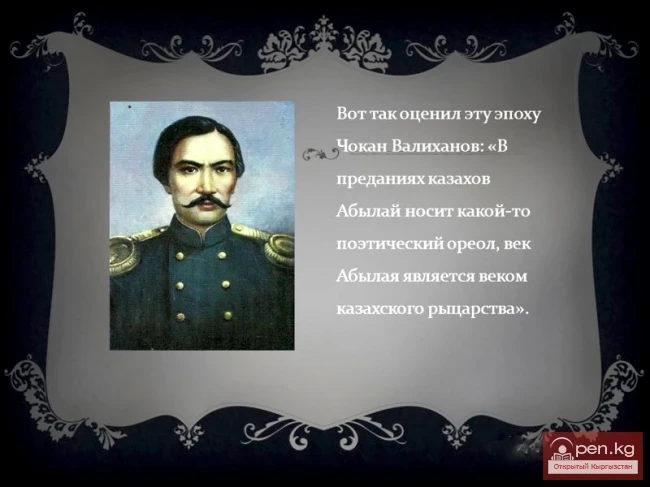
Scientific Achievements and Tasks of Kyrgyz Historical Science in the Study of the History of the Kyrgyz and the Kyrgyz Republic
A new stage in the study of the history, population, economy, and nature of Kyrgyzstan began after...
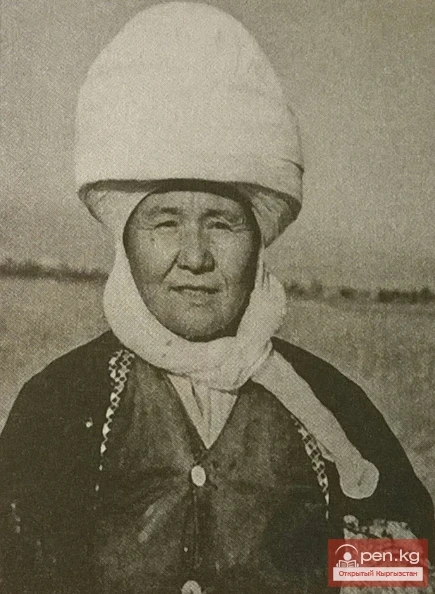
Formation and Development of the National Costume of the Kyrgyz People
National Clothing and Costumes of the Kyrgyz The formation and development of the national costume...

At the Exhibition of Contemporary Art, Kyrgyz People Were Presented in a New Light
Recently, in the loft "Tsех," six artists working in different genres of contemporary...

General Characteristics of Kyrgyz Folk Instruments
Kyrgyz folk instruments are an essential part of the national artistic culture — both as...

Kyrgyz Mausoleums and Domes
Kyrgyz Cult Architecture The Kyrgyz led a nomadic lifestyle and primarily lived in yurts....
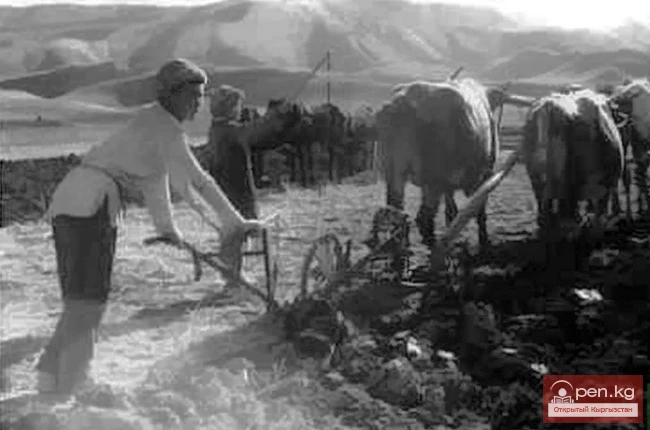
The Prolonged Process of the Kyrgyz Transition from Nomadism to Agriculture
Land Conflicts Conflicts over land frequently occurred between the nomadic Kyrgyz and the settled...

Atai Ogonbaev (1900—1949)
Atay Ogonbaev (1900—1949) entered the history of Kyrgyz folk musical culture as a versatile...
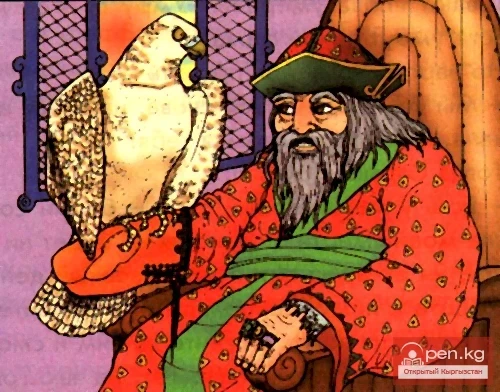
Pre-scientific Representations of the Kyrgyz about Nature
Knowledge and understanding of natural processes in which human life takes place is a prerequisite...
